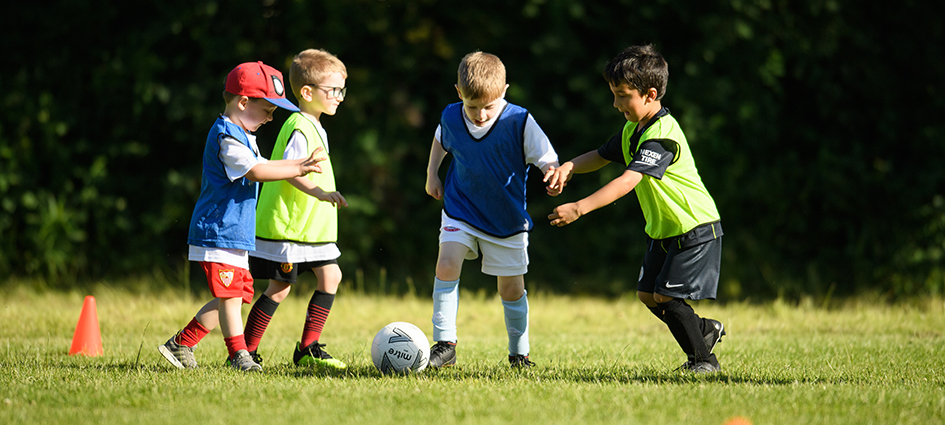
Free-play in early childhood
- The Boot Room
- 30 September 2019
The England DNA concentrates on child development as well as player development. It’s designed to help coaches, parents and volunteers understand the young child so that the sporting experience they provide in the Foundation Phase is an exciting and memorable one.
The research document, which can be found by clicking a link below, provides an insight into the world of the developing child (0-7 years), and outlines the key underpinning reasons for promoting and including ‘free-play’ opportunities for children.
This will allow you to have a greater understanding behind the call to give children more choice, ownership and responsibility during your session.
In modern society, the opportunities for free-play are reducing as children can now choose to use technology rather than ‘playing out’ with friends, but there are huge benefits from children engaging in free-play. What we mean here is: play that’s freely chosen by the children, intrinsically motivated and with no real end in mind. In this scenario, the adult is removed; however, the role they can play in enhancing these opportunities is important.
The research can be linked to your role as a football coach. In the sessions you plan for the Foundation Phase player, try to remember:
- too much structure, order and formality will reduce creative returns
- to provide time and opportunity within your session for the children to explore and experiment
- to give them choices over the activity type being used, or provide arrival activities that they can set up and regulate themselves
- to make sure you include lots of game-time as this is where children are introduced to sharing and cooperating - as well as finding out what the game is all about
- to play small-sided games on different sized pitches to maximise touches of the ball.
Click here to visit Play England's website to download the research document.
To learn more about Foundation Phase DNA, click here.


